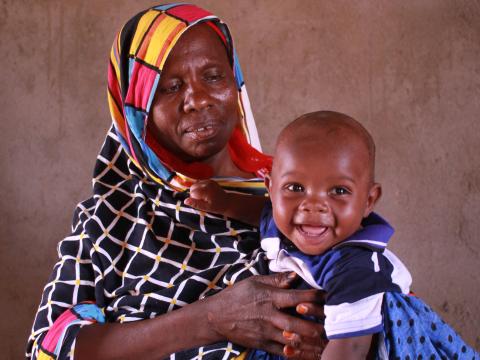It’s time for the G7 to move from vision to meaningful action on zero hunger

From May 26-27, leaders of some of the world’s richest nations will have an opportunity to deliver concrete actions on their 2015 and 2016 commitments to lift 500 million people out of hunger and poverty as they gather at the 43rd annual G7 Summit in Taormina, Italy.
The G7 Summits are an opportunity for leaders to make unified decisions for the direction of global efforts in ending some of the world’s most pressing issues. (Learn more about the G7)
This year’s summit comes at a critical time as the world faces an acute hunger crisis and several ongoing conflicts. Twenty million people across South Sudan, Somalia, Yemen and Nigeria are at risk of famine. In these four countries, 1.4 million children are suffering from severe acute malnutrition. Globally, 108 million people requiring life-saving food assistance, a 35 per cent increase in one year. These numbers are grave, but famine is preventable. The G7 Summit in Taormina offers a historic opportunity for the G7 leaders to meet their collective responsibility to prevent famine, protect children and provide durable solutions to the many millions more facing a severe food crisis. This will be the first real test of their commitment to make the 2030 Agenda for Sustainable Development’s commitment to ‘Leave No-one Behind’ a reality.
The UN is calling this the largest humanitarian crisis since 1945 - making this the most significant moment of humanitarian need ever facing a G7 Summit. Coming out of this year’s summit, we want the G7 to meet their commitments to lift 500 million people out of poverty and hunger through responding to the urgent need for resources, commit to work for peace by addressing conflict and injustice, and address the root causes of extreme hunger through support to smallholder farmers’ livelihoods and investing in national social protection systems.
It is crucial that famine, emergency food assistance and long-term food security are on the agenda for this summit. Famine is the result of many factors, including severe drought and ongoing conflict. Drought has been present in Somalia for three years. Nigeria, South Sudan and Yemen, all at risk of famine, are currently enduring conflict, which blocks resources from where they need to be and forces millions to flee in search of safety.
Children are the most vulnerable. In this day and age, famine is not a shortage of available food, as the world produces more than enough. At its core, it is a failure to protect the rights of the world’s most vulnerable citizens, the majority of whom are children. As a global community, we have failed to protect these children by addressing the root causes of extreme poverty, hunger and deprivation.
The G7 needs to step up and take action on the global hunger crisis to meet immediate needs but also needs to address the underlying drivers of extreme hunger over the long term.
On 21 May - the Global Day of Prayer to End Famine - millions of people around the world joined together to pray for an end to famine and hunger crises. World Vision joined more than 100 other partners in this eucumenical effort representing more than 1 billion people of faith to raise awareness of the seriousness of the crises and encourage action.
But it can’t end there with one day of prayer. We must continue to pray for those suffering from hunger and the humanitarians working at the field level to save lives and livelihoods. Beyond prayer, it is important that organisations, wider society and, especially, governments must be moved towards action.
In the past, the G7 has made declarations and commitments on ending global hunger, but few concrete steps have been made towards long-term sustainable progress. It’s time for the G7 to translate its laudable vision and commitment at Elmau into concrete action for those children and families who need it most.
During the Taormina Summit this week, World Vision asks the G7 to take action:
Invest more in food and nutrition security, in-line with country plans and targeting the poorest, most marginalised and vulnerable groups.
Track investments and outcomes in support of the G7’s accountability plan, with a specific emphasis on tracking contributions towards reducing child stunting and wasting.
Increase investments in sustainable and resilient smallholder farmers’ livelihoods and national-level safety nets. Additionally, ensure the most vulnerable children and their families have sufficient access to affordable, nutritious food year-round, even in the hardest-to-reach places.
Take immediate action to address unprecedented levels of acute hunger globally, specifically in taking action to avert the looming famines in Nigeria, South Sudan, Somalia and Yemen.
The outcomes from the G7 Summit have the potential to avert the catastrophe of famine, save lives and make a significant impact in the global hunger crisis.
Learn more by reading our policy report Famine: the end point of a global protection crisis.
Video courtesy of the World Council of Churches.